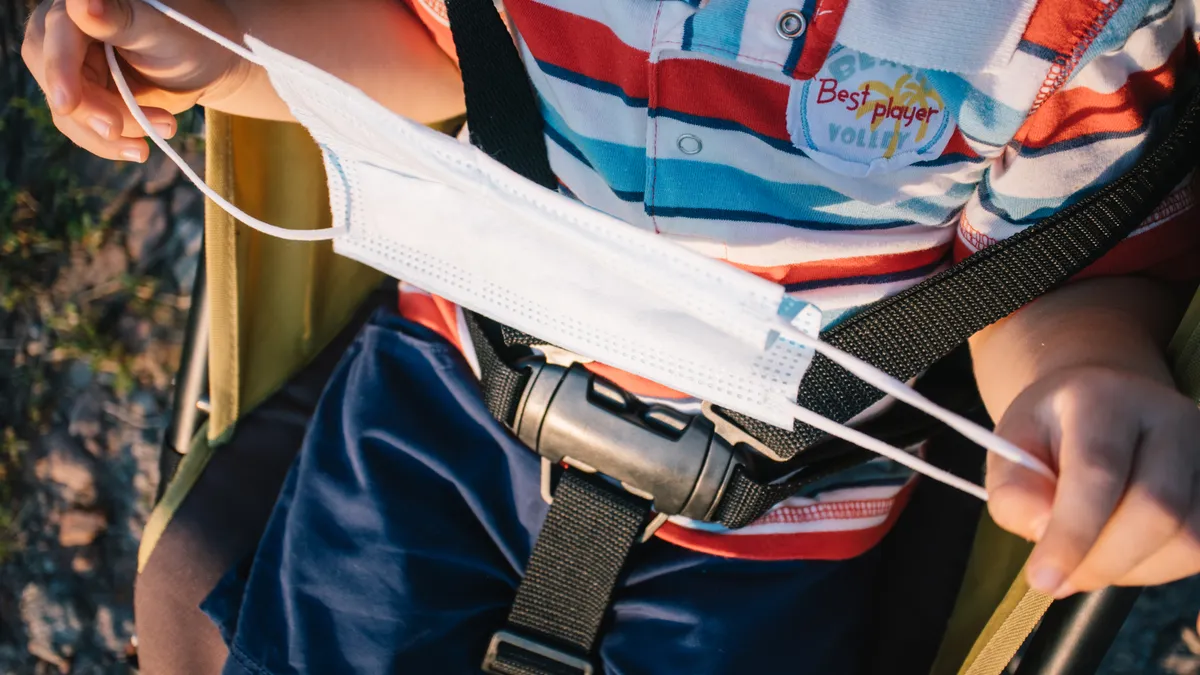Dive Brief:
- As preschools open this fall, educators are looking at new ways to support playtime and foster sharing even amid social distancing, writes Edutopia.
- Some choices schools are making permit students to be physically closer when they’re outside, and even shift activities, like sensory tables, to outdoor spaces. And while indoors, one preschool assigns students their own activity spaces, to help them stay physically apart while still playing.
- Schools are also focusing on students’ emotional needs. So while children may need to wear a protective T-shirt daily, the students get to decorate it to make it their own. Teacher needs are also addressed, with one preschool center providing educators free, continuing mental health support.
Dive Insight:
From preschool to early elementary school, play-based learning continues to be an important part of every young child’s day. It’s how students physically express themselves, while simultaneously learning how to develop crucial social skills. Yet COVID-19 has affected this important childhood activity.
Still, educators are determined to support social and emotional learning skills (SEL), even amidst the continuing pandemic. And as some schools physically open this fall, some of these lessons are starting to shift back to traditional in-person activities, even with social distancing requirements in place.
Non-profit Asphalt Green, for example, has published an extensive list of active games broken down by grades that allow students to maintain physically distant from each other. All the games dovetail as playtime, and each one has a conflict resolution tip, a core SEL skill, built-in to help students strengthen that social skill as well.
Not every child, though, is heading back to the classroom this fall. The National Association for the Education of Young Children (NAEYC) links to play and child development suggestions from a preschool teacher in China who had been working with students through digital learning avenues. She shares videos of yoga and mindfulness activities, all of which she encourages students do at home, and then suggests they upload videos and photos of themselves taking part in these physical interactions. She also set up video tutorials for families, so they can create Zoom playdates for their children.
Changes to playtime and the development of social skills are ongoing as the coronavirus pandemic continues. But educators are finding ways to foster and support these activities whether they’re working with students remotely, or in a social distanced classroom.







 Dive Awards
Dive Awards





